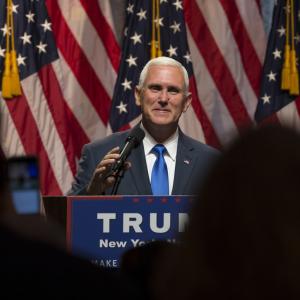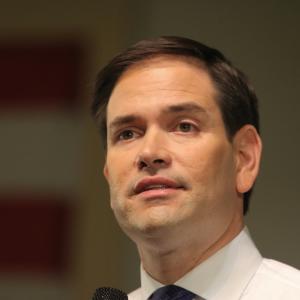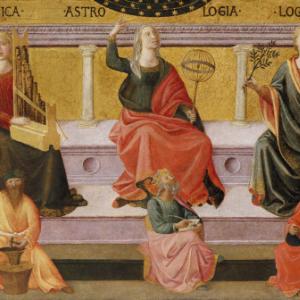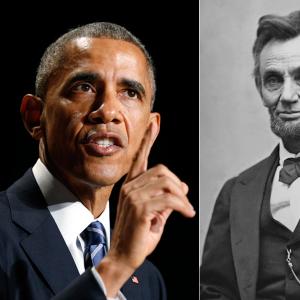
John Fea teaches American history at Messiah College. He is the author of Believe Me: The Evangelical Road to Donald Trump, just released in paperback with Eerdmans Publishing.
Posts By This Author
Christians Need the Liberal Arts Now More Than Ever
Are we equipped to muster the political, moral, and spiritual resources necessary to sustain our republic?
Evangelicals, This Is How Republics Fail
We have failed to be good citizens. We have become complicit in the president’s nativism, racism, xenophobia, narcissism, and fearmongering.
Pence’s Speech at the Southern Baptist’s Annual Meeting Was More like a Trump Rally

Image via Shutterstock/ lev radin
Pence’s speech turned the SBC annual meeting into a Trump rally. According to Eastern Illinois University political scientist Ryan Burge, the Vice President used the word “president” 61 times in his speech and “Trump” 12 times. He used the word “God” 9 times and “Christ” only twice.
How the American Bible Society Became Evangelical
But the fact that the ABS has decided to adopt such a statement after functioning for 202 years without one does make this development noteworthy. As the author of perhaps the only scholarly history of this storied Christian organization, I can attest that the “Affirmation of Biblical Community” represents a definitive break with the vision of its founders.
The Next Generation Will Do What We Couldn't
I am upset by the results of the election, and I am particularly saddened that 81 percent of white American evangelicals got into bed with a monster on Nov. 8. But I am also encouraged and have not lost hope.
Here’s why:
Around 11:15 p.m. Tuesday, my 15-year-old daughter, frustrated by all she was seeing on the television, stormed out of the room and announced: “Dad, I am going to bed. I am embarrassed for my country.”
Where Rubio Went Wrong on Faith and Politics

Marco Rubio in Iowa. Rich Koele / Shutterstock.com
Rubio is doing his best to sound like an evangelical Christian. Last night he spoke about his faith more than he has done in all the other GOP debates combined. From what I have read, Rubio attends both a Catholic church and an evangelical megachurch. His spiritual commitment seems sincere. I have no doubt that he is a man of faith. But the way he used his religion last night made the Christian gospel subservient to his political ambitions.
The Echoes of Abraham Lincoln in President Obama’s Prayer Breakfast Speech
President Obama’s political opponents are outraged over his remarks at last week’s National Prayer Breakfast comparing Islamic violence to historic Christian violence. Jim Gilmore, former chairman of the Republican National Committee, called the remarks “the most offensive I’ve ever heard a president make in my lifetime.”
But anyone who is angry with Obama’s speech must also express the same wrath toward one of the greatest presidential speeches in American history, Abraham Lincoln’s Second Inaugural Address, delivered 150 years ago next month.
Obama used his annual remarks at the National Prayer breakfast to condemn radical Islam (though he didn’t use the term). In the process, he made some more general comments about how religion has been used — both today and in the past — to promote violence.
What has rankled many conservatives is Obama’s statement that “during the Crusades and the Inquisition, people committed terrible deeds in the name of Christ.” He then brought his historical analogy closer to home:
“In our home country, slavery, and Jim Crow all too often was justified in the name of Christ.”
10 Reasons Why Evangelicals Should Read Pope Francis
Pope Francis on Tuesday released his first apostolic exhortation since his election in March. The message, “Evangelii Gaudium” (“The Joy of the Gospel”), challenges Catholics — both laity and clergy — to pay more attention to evangelizing the world.
While most American evangelicals do not usually read papal pronouncements, it would be a shame if we did not familiarize ourselves with Francis’ newest document, for there is much in it that evangelicals could embrace:
Those Who Will Not Learn from History
Like it or not, the far-Right members of the Texas State Board of Education may have already decided what your children will learn about American history.





